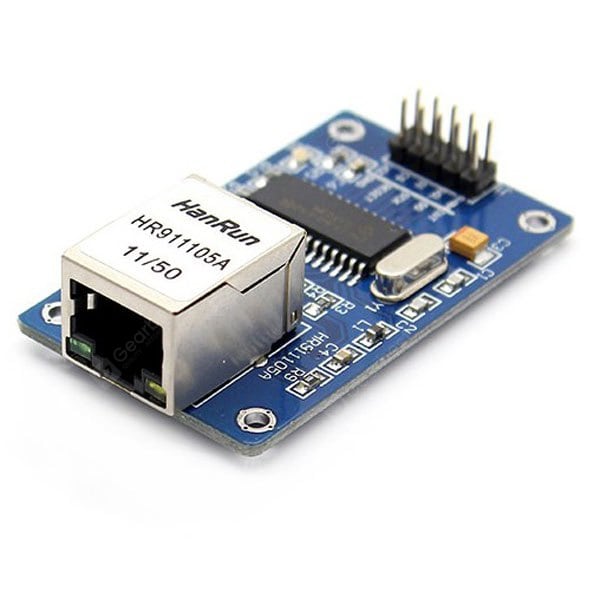Mbed library for ENC28J60 Ethernet modules. Full support for TCP/IP and UDP Server, Client and HTTP server (webserver). DHCP and DNS is included.
Dependents: mBuino_ENC28_MQTT Nucleo_Web_ENC28J60 Nucleo_Web_ENC28J60_ADC Serial_over_Ethernet ... more
Library for ENC28J60 Ethernet modules.

Ported to mbed from Norbert Truchsess's UIPEthernet library for Arduino. Thank you Norbert!
- Full support for persistent (streaming) TCP/IP and UDP connections Client and Server each, ARP, ICMP, DHCP and DNS.
- Works with both Mbed OS 2 and Mbed OS 5.
Usage:
- Import the library into your project.
- Add
#include "UipEthernet.h"tomain.cpp - Create one instance of the UipEthernet class initialized with the MAC address you'd like to use and SPI pins of the connected Mbed board.
Example programs:
Import programWebSwitch_ENC28J60
HTTP Server serving a simple webpage which enables to remotely turn a digital output on/off. Compile, download, run and type 'IP_address/secret/' (don't forget the last '/') into your web browser and hit ENTER.
Import programHTTPServer_Echo_ENC28J60
A simple HTTP server echoing received requests. Ethernet connection is over an ENC28J60 board. Usage: Type the server's IP address into you web browser and hit <ENTER>.
Import programTcpServer_ENC28J60
Simple TCP/IP Server using the UIPEthernet library for ENC28J60 Ethernet boards.
Import programTcpClient_ENC28J60
Simple TCP/IP Client using the UIPEthernet library for ENC28J60 Ethernet boards.
Import programUdpServer_ENC28J60
Simple UDP Server using the UIPEthernet library for ENC28J60 Ethernet boards.
Import programUdpClient_ENC28J60
Simple UDP Client using the UIPEthernet library for ENC28J60 Ethernet boards.
Import programMQTT_Hello_ENC28J60
MQTT Client example program. Ethernet connection is via an ENC28J60 module.
Diff: DnsClient.cpp
- Revision:
- 15:53715cc81c63
- Parent:
- 9:a156d3de5647
- Child:
- 16:269f652b4d0b
--- a/DnsClient.cpp Tue Sep 03 09:16:55 2019 +0000
+++ b/DnsClient.cpp Sat Sep 07 17:42:42 2019 +0000
@@ -128,6 +128,9 @@
int DnsClient::getHostByName(const char* aHostname, IpAddress& aResult)
{
int ret = 0;
+ Timer timer;
+
+ timer.start();
// See if it's a numeric IP address
if (inet_aton(aHostname, aResult)) {
@@ -141,7 +144,7 @@
}
// Find a socket to use
- if (iUdp.begin(1024 + (time(NULL) & 0xF)) == 1) {
+ if (iUdp.begin(1024 + ((timer.read_ms() / 1000) & 0xF)) == 1) {
// Try up to three times
int retries = 0;
// while ((retries < 3) && (ret <= 0))
@@ -202,7 +205,7 @@
// +--+--+--+--+--+--+--+--+--+--+--+--+--+--+--+--+
// As we only support one request at a time at present, we can simplify
// some of this header
- srand(time(NULL));
+ srand(time(NULL) + 2);
iRequestId = rand() % 0xFFFF + 1; // generate a random ID
uint16_t twoByteBuffer;
@@ -273,12 +276,15 @@
int16_t DnsClient::processResponse(uint16_t aTimeout, IpAddress& aAddress)
{
time_t startTime = time(NULL);
+ Timer timer;
+
+ timer.start();
// Wait for a response packet
while (iUdp.parsePacket() <= 0) {
- if ((time(NULL) - startTime) > aTimeout)
+ if (timer.read() > aTimeout)
return TIMED_OUT;
- wait(0.050);
+ wait_ms(50);
}
// We've had a reply!
